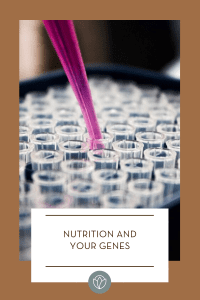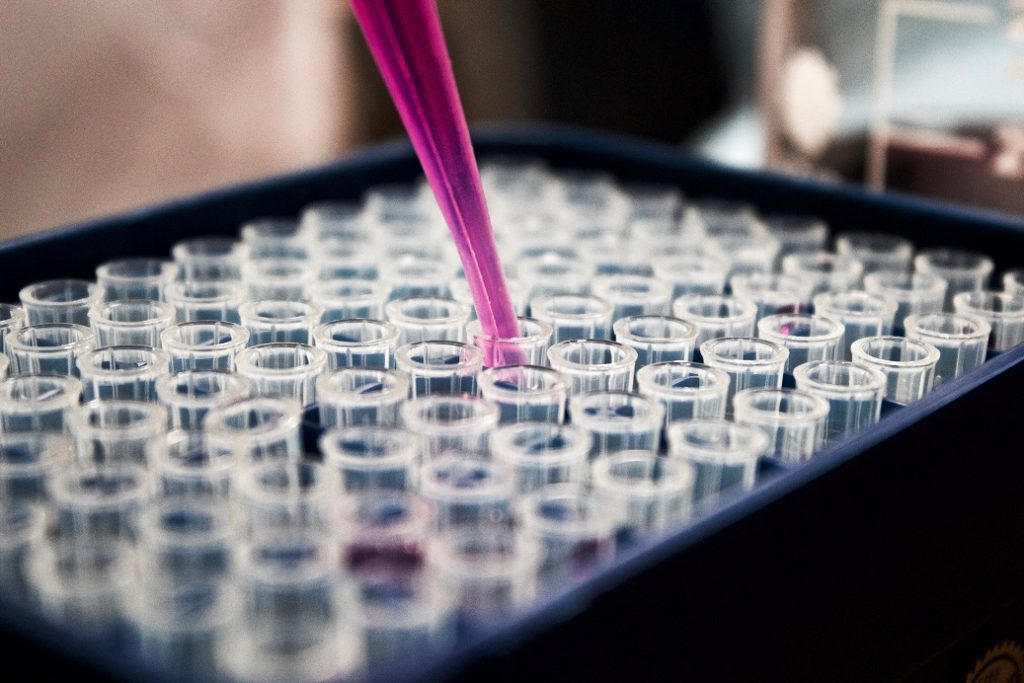Nutrition and Your Genes
Have you ever been confused by some of the nutrition advice you see or hear?
One moment we hear caffeine protects our hearts, and then the next, we hear it is bad for us. And what about salt? It used to be terrible for us, and now maybe it isn’t so bad. Which diet should we consider: Keto, Vegan, Fasting? Are eggs good or bad? Meat? Coconut Oil? Ahhhhh!!! The answers may be found in your genes.
Did you know that the truth may be found in your genes?
We are learning so much right now about our genes, and we are finally starting to make real connections in understanding how our environment (including food and exercise) affects the expression of our genes. It can be so helpful to understand the types of foods that are best for our bodies. The true nerd in me is really excited about all of this! There are still some limitations though as the science behind some of these genes is not very strong yet.
What does this mean for you?
It is fairly easy now to send in a sample of your saliva and in a couple of weeks have a complete record of all of your DNA. The cost ranges from $90 to $400 depending on how in-depth you want your test and how detailed of a report you want. The interpretation of the data is really the key to any of these tests. If you get yours done, you must be committed to making changes to your diet and/or exercise based on your results. You may also need some guidance from a professional who has experience in interpreting results.
When looking for a genetic test to consider, you should think about how many different genes it tests and what kind of information you want to know. You should also consider how the company keeps your information private. Lastly, you will want to know if the company will provide the raw data for you (the rs numbers). When you have the raw data, you can discover more information with the help of your health professional.
Examples of information you can learn:
- Weight-loss related genes like the FTO gene is one of our most researched genes. If you have a specific variant on this gene, then your body will respond by losing more weight if you keep your saturated fat intake low. That means limiting your fat intake from animal sources like beef and cheese. If you don’t have this variant, then your intake of saturated fat may not be as important. It can also give us clues about whether or not a high protein diet will help you lose weight.
- Exercise-related genes can show you which types of exercise your body will have more benefit from. This category contains a handful of genes. The genes tested are generally related to which types of muscle fibers you have more of (fast twitch or slow twitch), capacity for aerobic exercise measured by VO2 Max, and overall metabolism for energy.
- Vitamin and Mineral Deficiency risk can be determined by genes also. For example, the MTHFR gene is a gene that controls the methylation of folate. Methylation is necessary for folate to be absorbed. If you have a variant of this gene, it may be harder for your body to methylate folate and so even if you are eating enough, you may not be absorbing it. This is thought to be a major factor in infertility and miscarriage.
- The ACE gene is directly regulated blood pressure. If you have a certain variant of this gene, the amount of sodium you eat will greatly influence your blood pressure. If you do not have this variant, the sodium you eat will not affect your blood pressure much at all. Amazing!
- The CYP1A2 gene regulates how your body metabolizes caffeine. If you are a slow metabolizer, drinking more than 1 cup a day may increase your risk of heart attack.
There are also genes that tell us if you are more prone to liking the taste of fats, sugar, or carbs. You can find out risk for lactose and gluten intolerance, your pain tolerance, and your risk of tendon injury. The list goes on and on. The genetic information you receive could help you clarify which nutrition recommendations really are best for YOUR body!













